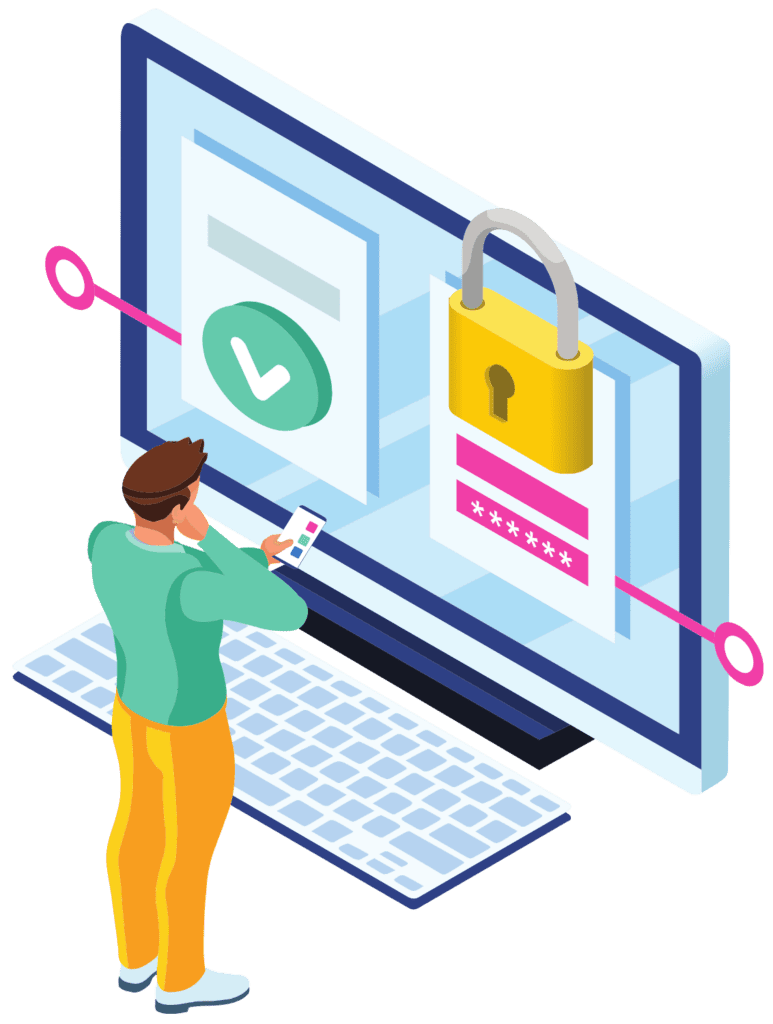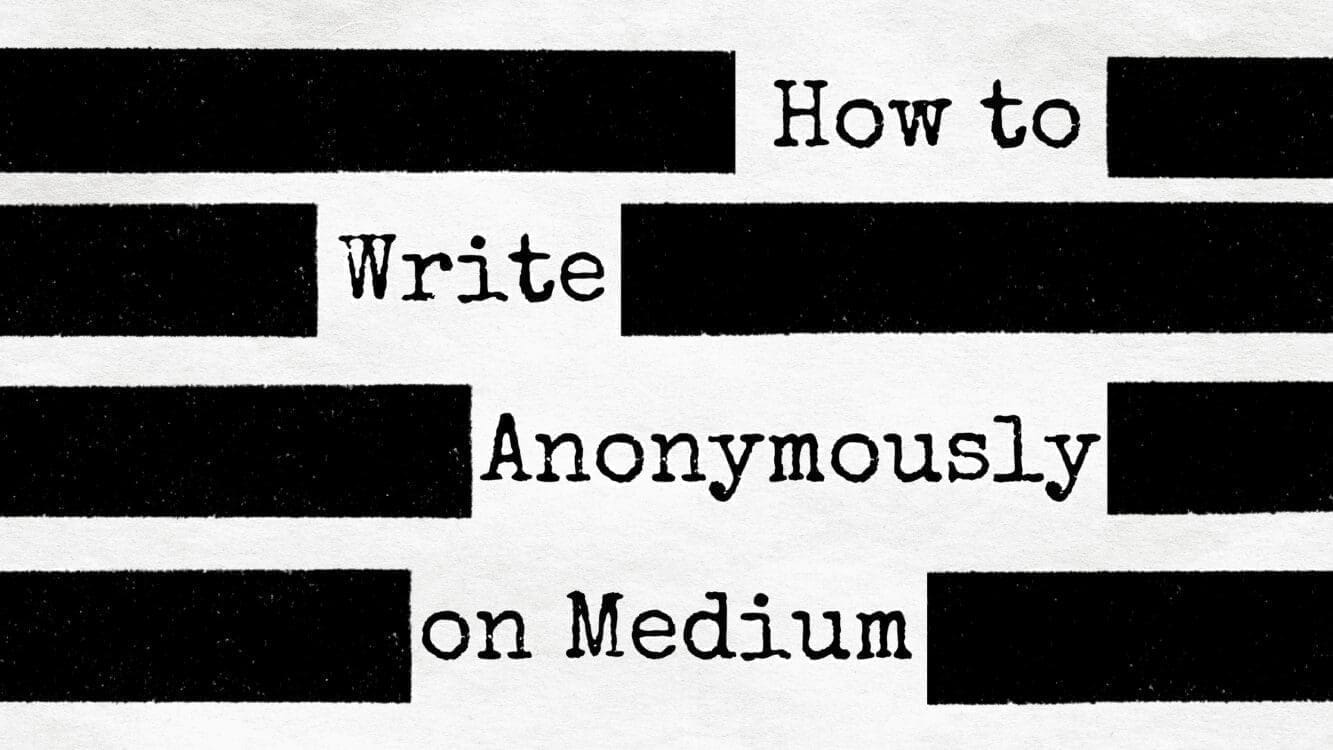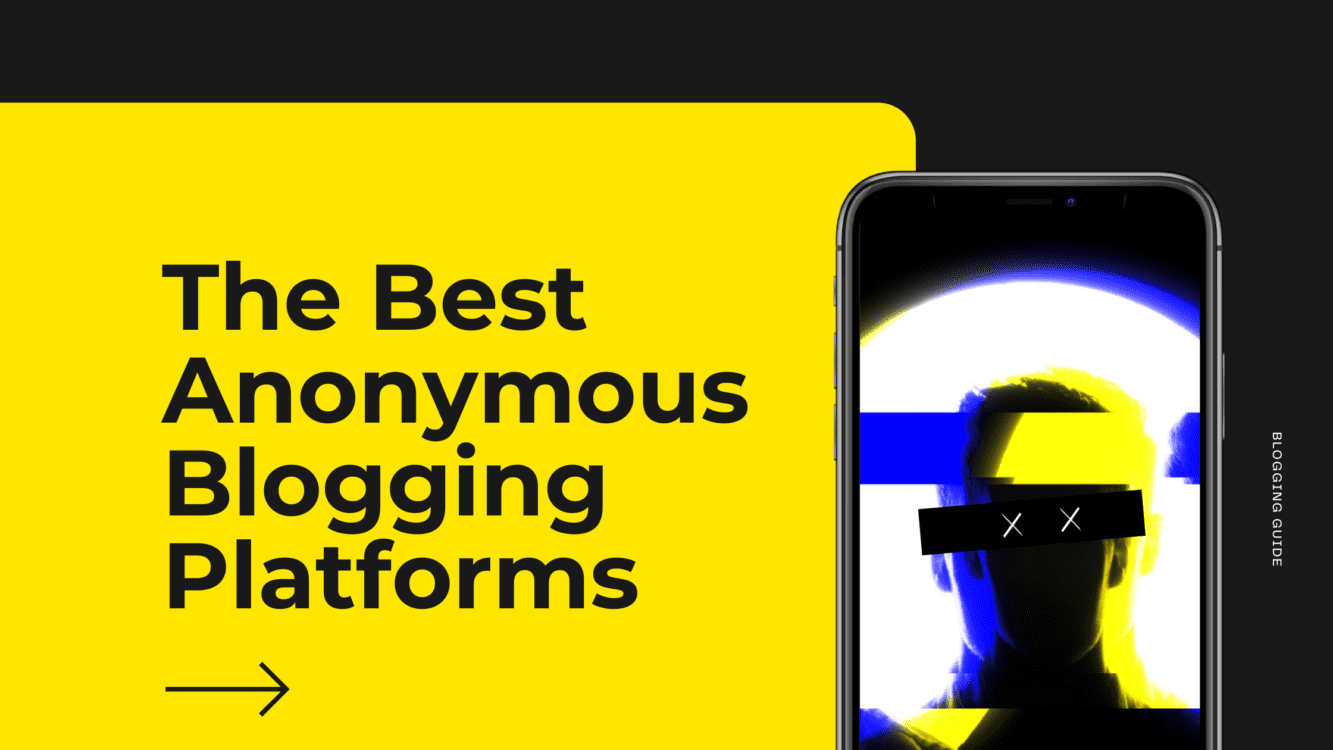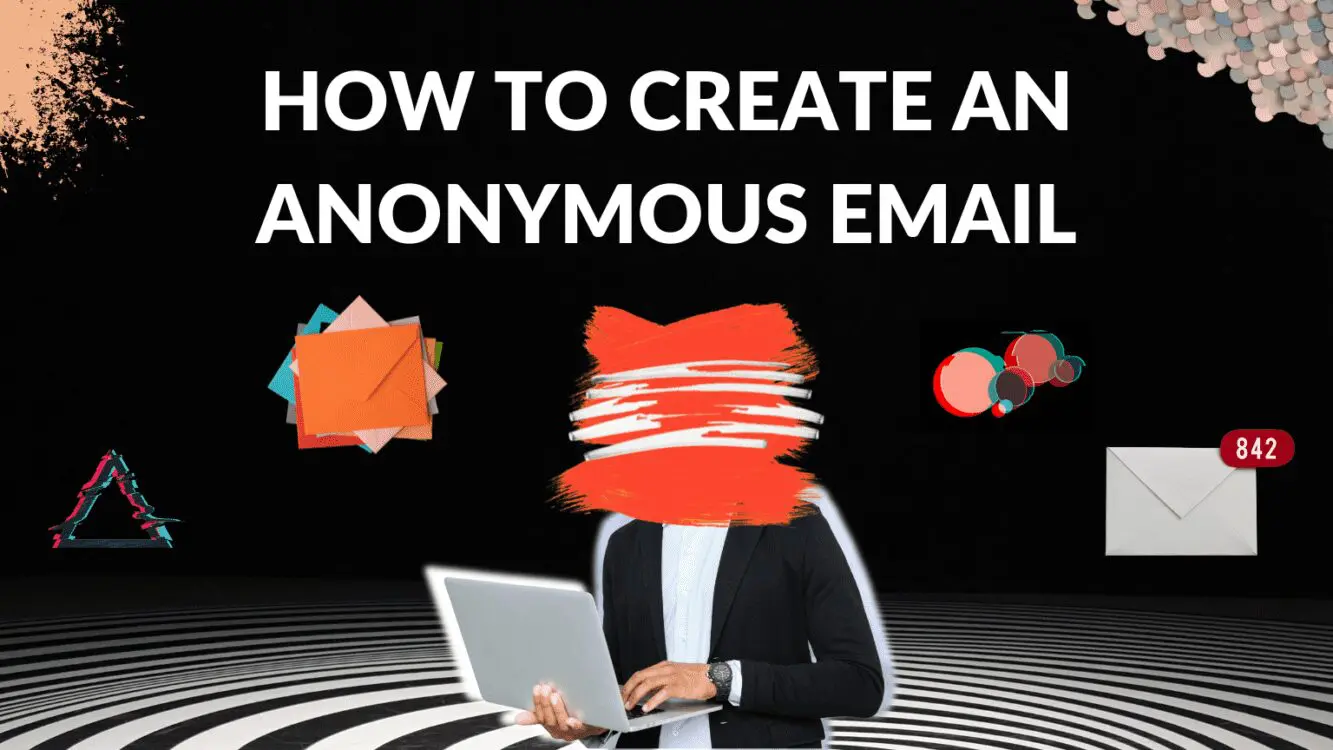How to Write Anonymously on Medium

Written by Casey Botticello
Disclosure: Some of the links below are affiliate links, meaning that at no additional cost to you, I will receive a commission if you click through and make a purchase. Read our full affiliate disclosure here.
When I first started writing on Medium, there were no affordable resources available for writers. Growing my monthly Medium earnings to over $1,000 per month was hard and took me over a year! That's why I created my own Medium Course.
CASEY BOTTICELLO
Founder, Blogging Guide
Looking for a way to publish blog posts online without using your real name? Wondering if Medium might be the right fit? The platform is among the world’s most popular blogging platforms that allows both professional and amateur writers to share their thoughts for free and have a chance to earn money. And with an estimated 100 million monthly users, it is possible to gain enormous recognition as an individual writer or brand. This guide will explain how to write anonymously on Medium.
Still, there are people – for whatever reason – who may feel the need to write and publish stories on the site while maintaining their anonymity. Writing under a pseudonym or as an unknown writer is nothing new. Long before the age of the internet, writers have been coining pen names for one reason or another.
How can you do this too, and why would you want to keep your identity secret when publishing content online? Do you still have the opportunity to earn through the Medium Partner Program if you blog privately on the platform? Keep reading for answers to these questions and more.
Can You Blog Anonymously on Medium?
The short answer is yes. It is entirely possible to publish articles on Medium and not have readers know exactly who is behind the content.
It is just a simple matter of knowing how to proceed.
Before launching into the “how,” it is important to understand the “why” of blogging anonymously on Medium.
For one, while there are numerous platforms that allow you to blog anonymously, Medium is one of the few that allows you to hide your true identity and still be able to earn money from your content.
That’s right, you can still monetize your work through the Medium Partner Program even while having one or more anonymous accounts.
Medium is also easy to join and use using an email address or social media handle. You don’t need to install and configure templates or do any form of web design or coding.
It is very much like having a Twitter account, except that it allows you to create much longer posts and possibly get paid for them. Once you have a Medium account and you are ready to create content, you simply open up the text editor and start writing.
Another reason to choose Medium as your anonymous blogging platform of choice is its high domain authority of well over 90. Websites having an excellent domain authority is an indication of their popularity in Google search.
It means that your blog posts on Medium are likely to show up in search results, which will boost traffic to your content. In fact, blogging on Medium takes away the headache of having to focus on technical strategies such as SEO, which is necessary to find readers.
The platform’s large audience makes it possible to attract readers without any SEO work as well, even though you will be blogging anonymously.
Reasons to Be an Anonymous Blogger
Outside of the convenience and monetization opportunity on Medium, there are a number of other reasons you may want to pursue blogging anonymously online. Some of the main reasons include:
Avoid Being Judged
Maybe you want to write about a sensitive topic such as sex, religion or politics, or probably you have a controversial opinion you want to share, but feel your friends and followers may not approve of your viewpoints. It could be that you have a secret that would place your family under intense negative scrutiny from the public. Whatever the case, writing anonymously on Medium (or anywhere else, for that matter) would provide you with the freedom to share your thoughts without being judged by the people closest to you.
Write About New Topics
Some bloggers have the ability to write extensively on various topics, but have already established themselves as experts on a particular subject. For example, maybe you have built up a sizable following by blogging about the music industry. At the same time, you may possess knowledge on a completely unrelated topic such as fixing boats. Creating a pen name would allow you to start a blog on the latter topic without taking away from your work as a music industry expert.
Be Taken Seriously by a Certain Audience
In the past, many female authors used masculine sounding pen names. The main reason? Because they feared not being taken seriously if target readers knew they were female. Women also chose male pseudonyms to avoid stereotypes; for example, being expected to write syrupy romance novels instead of more gritty stuff. Mary Ann Evans, who used the pen name George Eliot for much of her work, was one such example. Male writers may also opt for a pseudonym if they believe their ties to a famous family member would affect the public’s perception of them.
Creating a Memorable Name
It is hard to disagree that the name Mark Twain is way simpler and more memorable than Samuel Langhorne Clemens. The same can be argued about the name George Orwell when compared to Eric Arthur Blair. Writers who were born with names that are seemingly mundane or hard to pronounce may opt to use a pen name that has a better ring to it or which resonates more with their audience.
Avoid Name Confusion
Sharing names with a famous personality or another established writer can come with several drawbacks, especially when in the business of content marketing. For one, SEO efforts would prove difficult because most search results would point to the more famous individual. In addition, having the same name as another writer can make it difficult to establish your own brand and lead to mix ups among readers. In this case, it would be helpful to use an anonymous name to set yourself apart.
Avoid Prosecution (in Authoritarian Countries)
Blogging is one of those activities that you can conduct from anywhere in the world. However, some countries and regions heavily censor online content. Countries such as China and Russia, for example, may prosecute writers who criticize their politicians and state officials. Bloggers living under such conditions may still wish to share their opinions by writing anonymously online to preserve their identities.
Prevent Breaching Contracts
If you work in certain industries, you might be barred from writing online about topics related to your job or company. In such a case, it is still possible to write freely by adopting an anonymous name that does not identify you or your day job.
How to Blog Anonymously on Medium
Now that you know some of the main reasons to keep your identity private while blogging online, it is time to learn how you can do it specifically on Medium.
1. Create a Second Account
Medium allows you to use your own name, as well as any other name you choose, for your author account. As such, you can have either one account with a pen name, or one account with your real name and others under a pseudonym.
While you could change the name of your existing account to something new, I would caution you against this approach, since it is still relatively easy to connect posts made under the same Medium account (even with different names).

2. Use Unique Email
You can set up a relatively anonymous Gmail account, provided you don’t give Google your real name, location, birthday, or anything else the search giant asks for when you sign up.
This email should only be used for your anonymous Medium account. Using it for anything else will put your anonymity at risk.

3. Join Partner Program with Unique Stripe Account
To join the Medium Partner Program with a second, third, or more, anonymous accounts, you will need to use a unique email address for each account and for their respective payment information. That’s because an email address can only be used for one Medium account, whether for membership or for writer monetization.
You will also need to use your “Medium email” for setting up a second Stripe account (which is how payments are processed to writers on Medium). Each Medium account requires it’s own unique Stripe account.

4. Use Unique Browsers to Partition Your Accounts
Managing multiple Medium accounts can be tricky without planning. But with a few simple tools and techniques, you can make the process much easier.
Use unique browsers. Perhaps the biggest inconvenience in operating multiple Medium accounts is switching between these accounts. Medium’s single session sign on framework makes it tedious to switch accounts. So the easiest way to avoid this problem is to stay logged into both of your accounts.
You can do this in multiple ways.
The first is to use separate browsers for each account. For example, you might login to your first account in Firefox and login to a second account using Chrome.
Use browser tools. If you want to login to your Medium account using the same browser, you need to use a browser tool to help isolate cookies. I personally use a Firefox add-on called Multi-Account Containers.

5. Limit Inclusion of Personal Information
Managing an anonymous Medium blog doesn’t get any easier after setting it up. You’ll need to read through every post before publishing to make sure you’re not giving up any details that can point you out.
This includes where you live, physical characteristics, personal stories and any of those little quirks that make you unique.

6. Avoid Account Interaction
If you are operating multiple Medium accounts, and trying to keep at least one of them anonymous, it’s best to avoid any interaction between accounts.
While it may be tempting to clap for articles posted by one account from your second account, this activity can easily allow readers to figure out that you have an anonymous account.
It also may trigger one of Medium’s internal systems designed to detect bot/automated activity.
So it is best to limit each account to only reading or interacting with content published under that account.

Conclusion
Starting and maintaining an anonymous Medium blog does take planning and forethought (especially if you are operating multiple Medium accounts). And in many cases, there is no way to 100% mitigate the risk of your identity being linked with your blog.
Still, if you follow the steps outlined above, you can greatly increase the odds that your Medium blog remains anonymous.




